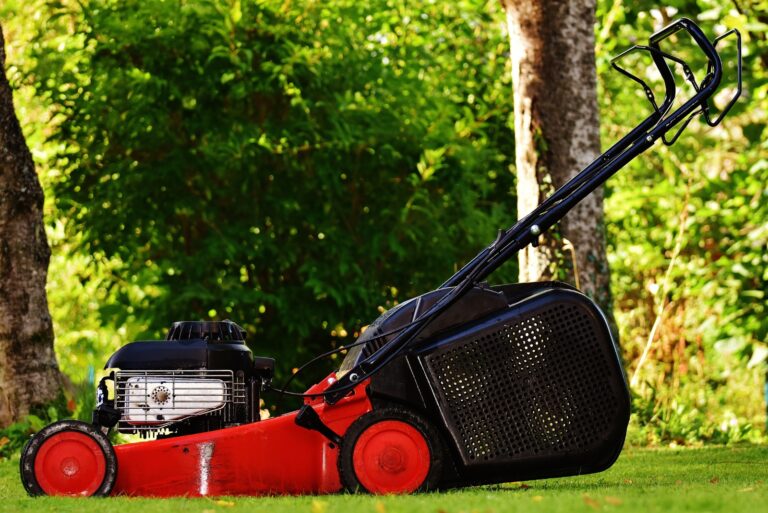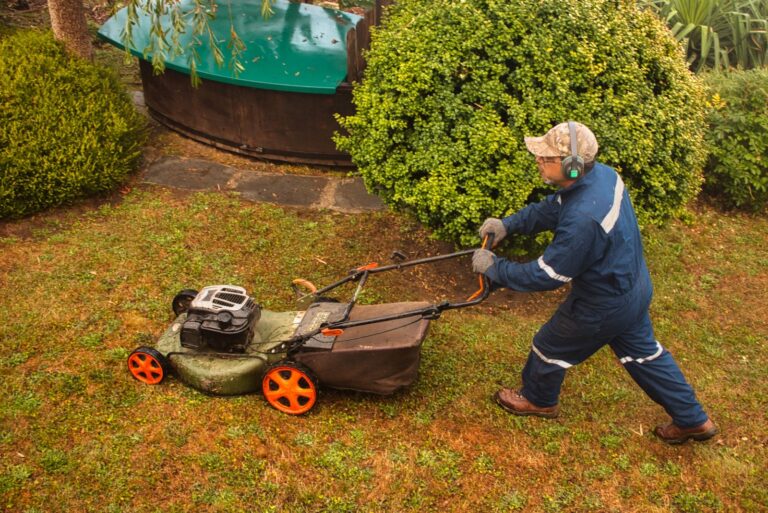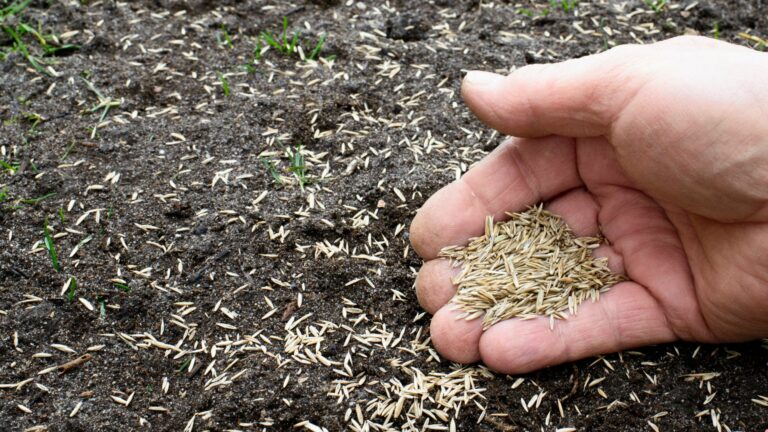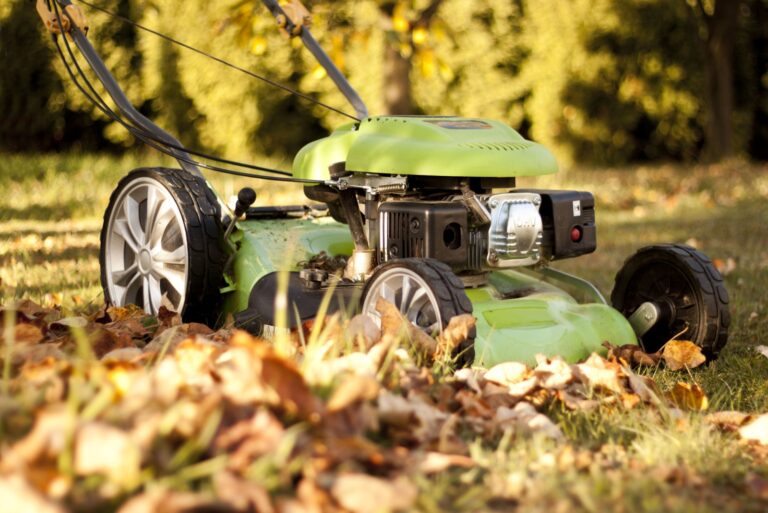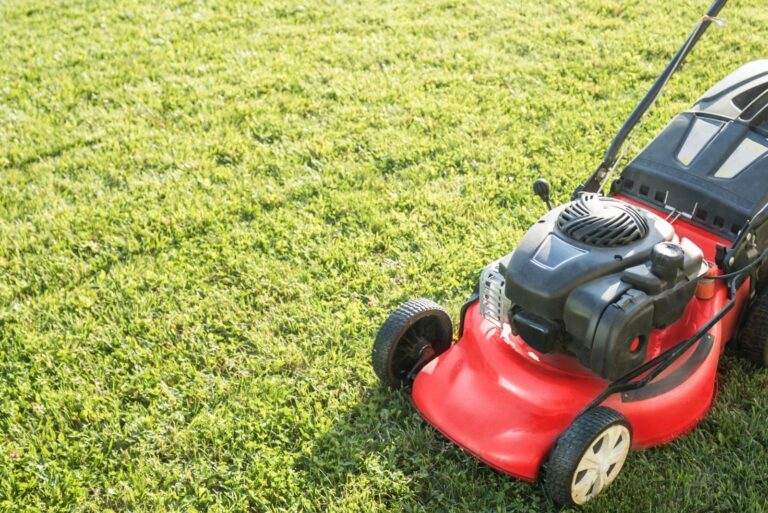These Are The Critters That Are Making Small Holes In Your Lawn Overnight
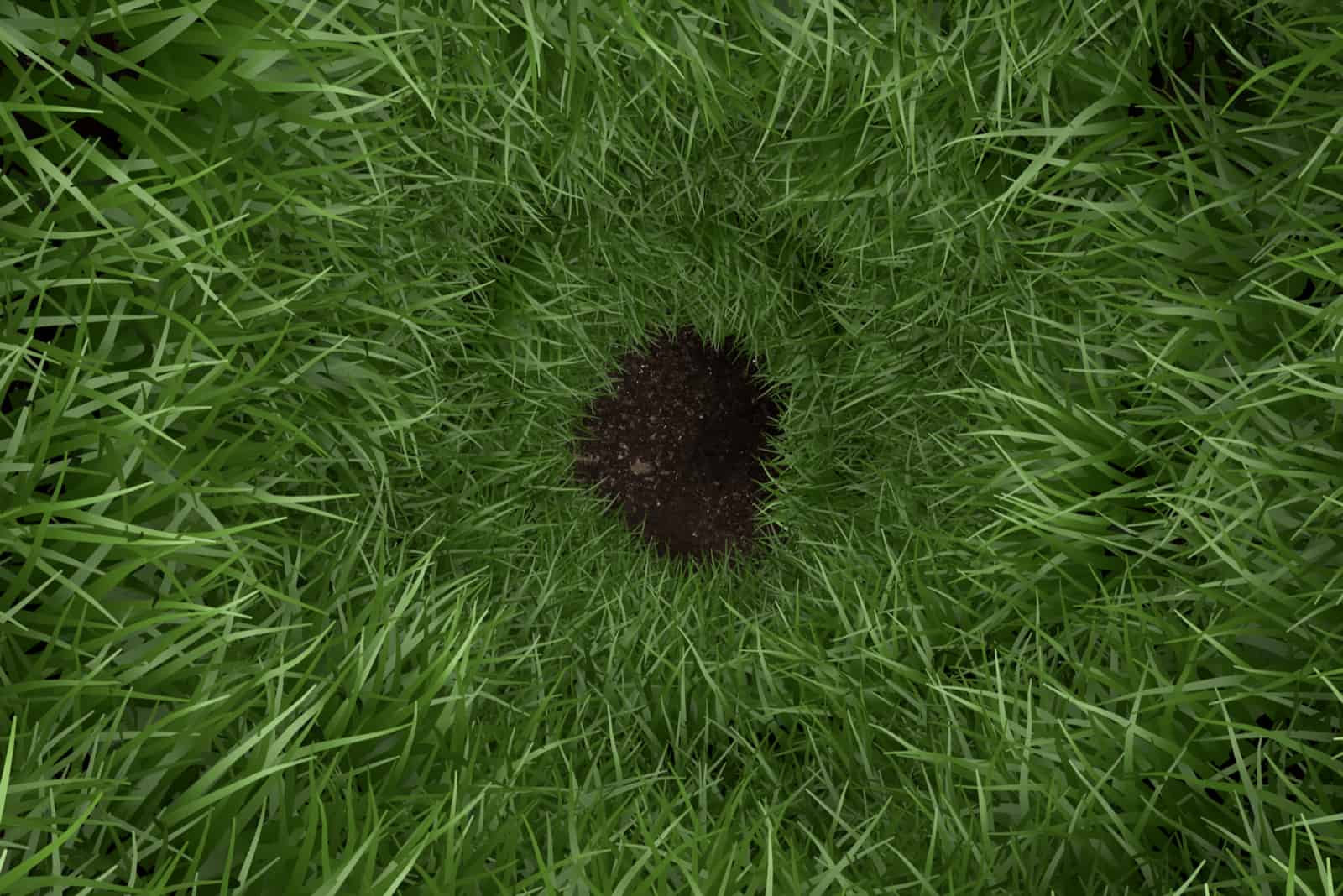
Positive Bloom is an Amazon Associate and we earn from qualifying purchases through these links at no extra cost to you.
When you wake up and look at your lawn, it can be very strange and surprising to see small holes that weren’t there the day before.
The small holes that appear in your lawn overnight can be caused by different animals, pests, insects, or invertebrates. Additionally, children and pets can also cause small holes.
Tiny holes are caused by insects, pests, and invertebrates.
Larger holes are caused by small rodents like voles, chipmunks, armadillos, raccoons, and gophers.
Some culprits may do severe damage to your lawn, while others can actually be useful and won’t cause much trouble. Even if they do cause some damage, it will be much easier to fix.
Animals dig holes to find food because the soil underneath the surface of the lawn can hide great food sources.
This article will help you get to the bottom of who’s to blame for the small holes in your lawn!
What Is Causing Small Holes In Lawn Overnight?
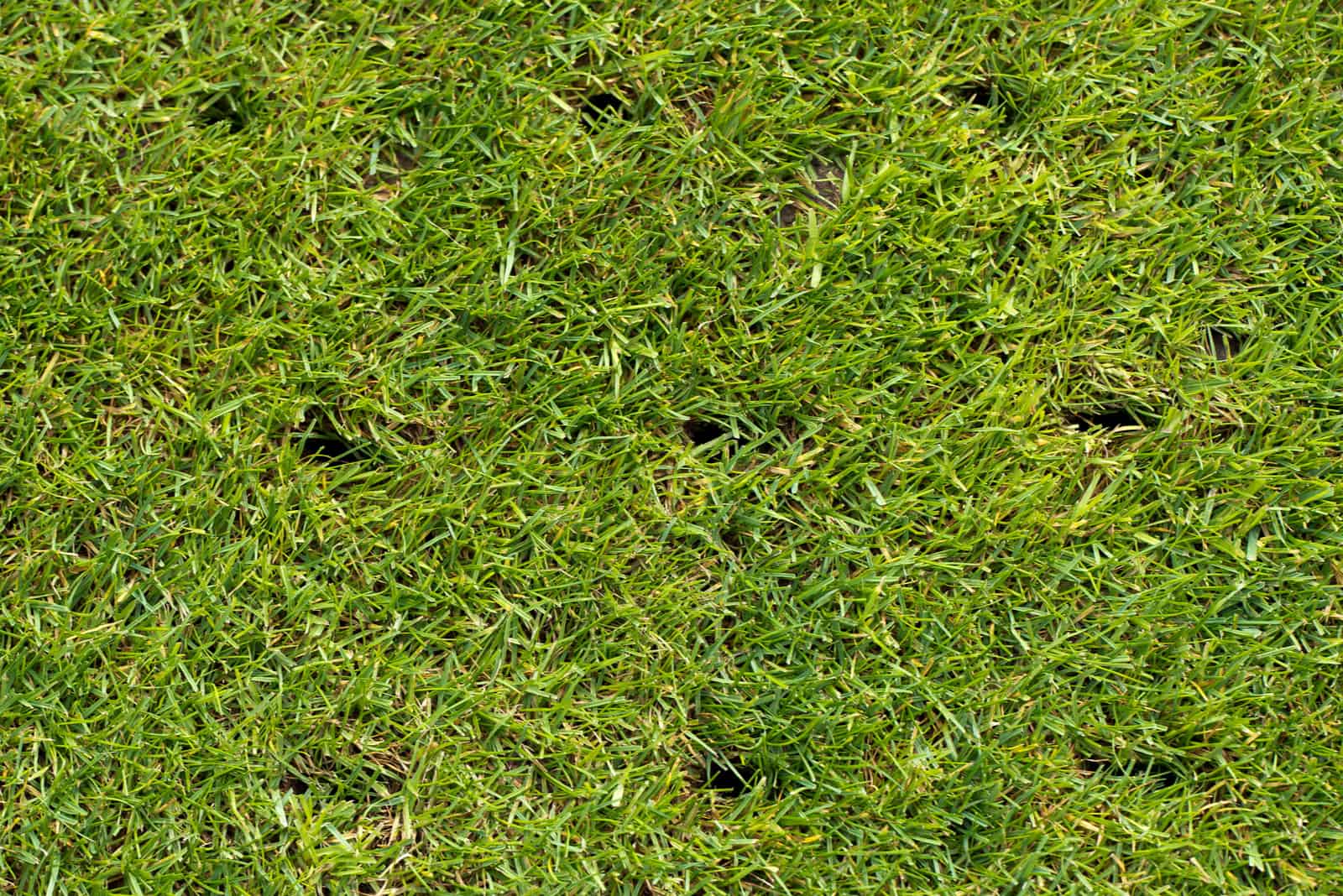
In order to identify the culprit, pay close attention to the size of the holes.
The smaller hole, the smaller culprit.
Common smaller culprits which cause very small holes in the lawn are earthworms, insects, pests, wasps, crayfish, moles, and small rodents.
Common culprits that cause bigger holes are chipmunks, eastern gray squirrels, birds, armadillos, snakes, and even children and pets.
Chipmunks And Eastern Gray Squirrels
There are many different causes of holes, and common culprits are chipmunks.
If the holes are near log piles or stumps, and if the size of the hole is less than 3 inches, the likely culprit is a chipmunk.
In order to avoid danger, chipmunks hide in the tunnels and burrows they make.
The other culprit could be the eastern gray squirrel.
Even though the eastern gray squirrel prefers trees, if there is nut grass in your yard, eastern gray squirrels will likely come and feed on it.
The other reason why this small animal can be found on your lawn is simply to hide the nuts they have collected.
The holes they dig are small and shallow.
There is no mound of soil around the holes.
Earthworms
Another culprit can be the earthworm.
Earthworms are invertebrates, and the important thing about earthworms is that they only appear in lawns that are healthy and well maintained. To an earthworm, lawn care is very important.
Earthworms are actually essential for maintaining good air circulation in the lawn.
Small earthworms create tunnels, causing the air to circulate well and thereby improving the drainage system.
The problem with earthworms is that if the number of earthworms increases, there will be too many tunnels, leading to collapse and too many holes in the lawn.
Piles of granular pellets of soil known as worm castings are indicators of earthworm holes.
Well moisturized soil and higher temperatures in fall or spring will activate earthworms. If you notice small holes during these seasons, take a closer look to see if there are castings along with the holes.
Birds
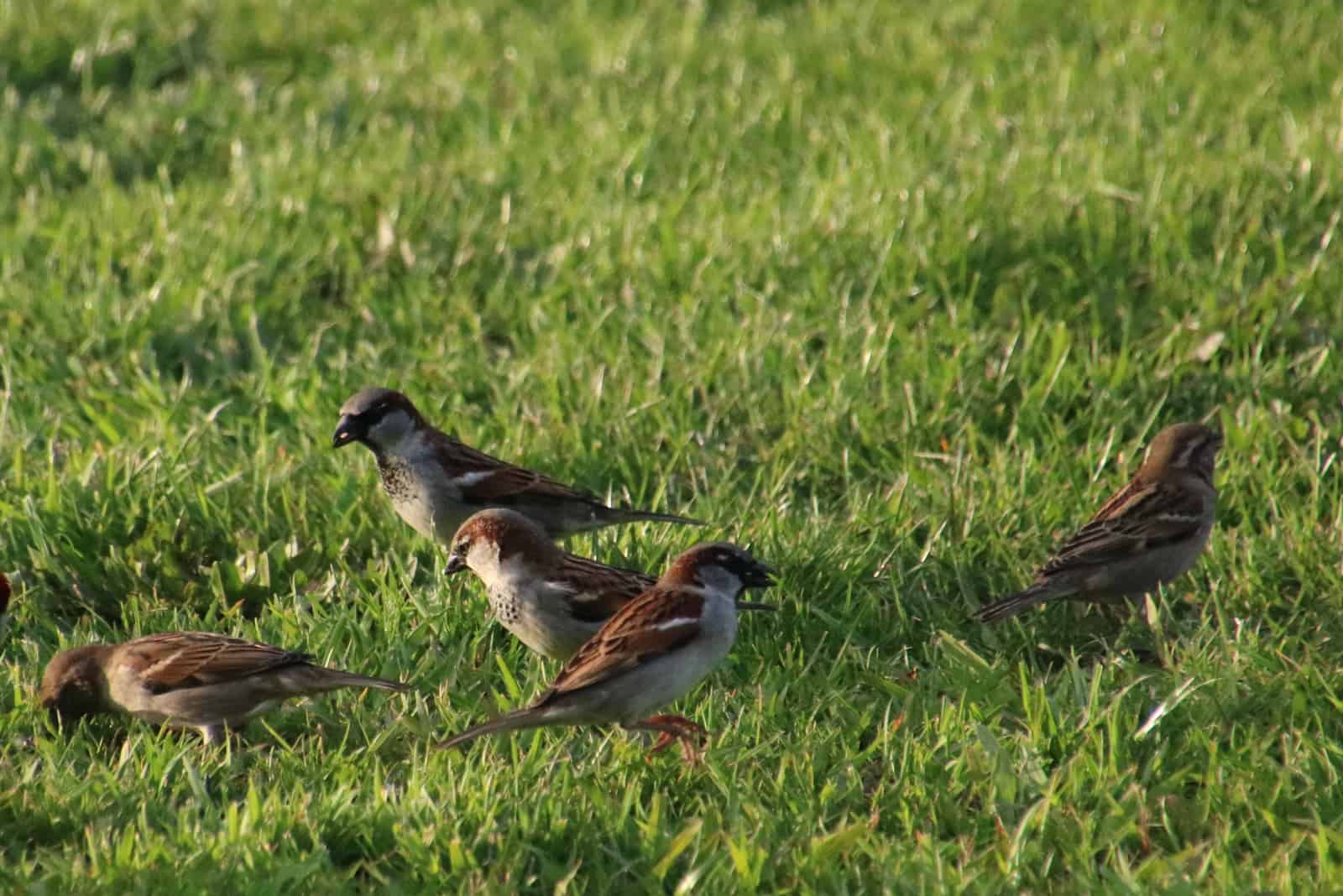
A common culprit for small holes in lawn overnight can also be birds.
To confirm whether or not it’s birds, you should first check for lawn pests. If birds want to detect the pests in your lawn, they will peck it so as to find pests such as grubs or ants.
Consequently, the longer they peck, the larger the number of small holes that will appear.
When you notice small holes look up to the sky, and if any birds fly over your lawn you may have found the culprit.
Armadillos
Another common cause of lawn holes is the armadillo.
Grubs and insects are food sources armadillos love eating.
In order to approach the grubs and insects, armadillos will dig holes.
How can you tell if armadillos created the small holes in lawn overnight?
Look for insects – termites or ants in particular. If you spot ant hills or tiny holes with a mound, it means there are many ants present.
Additionally, if you see any dead patches of brown grass, it’s likely there are Japanese beetles in their larvae stage that eat grass roots present.
The combination of ants and larvae could attract diggers like armadillos.
Armadillos dig up the turf, which causes small and shallow holes 1 to 3 inches deep and up to 6 inches across.
Some other animals can be attracted by larvae, like raccoons and skunks.
Small rodents
Small rodents are likely to cause small holes in lawn overnight, especially in areas with large numbers of small rodents. In order to find out which areas are typical for small rodents, check out ‘The Most Common Culprits In Different Areas’ section further on in the article.
The most common small rodents that cause small holes in your lawn are gophers, voles, and rats.
Although some people claim that moles are small rodents, this isn’t actually true. Moles are insectivores, and as such will be placed in a different section.
Gophers
Culprit – small rodents – gophers
If you have been finding small holes in your lawn, you may have gophers.
These pests feed on the blades and roots of the grass, which creates small holes.
There is one more thing gophers can cause – you can blame gophers if you notice mounds of dirt on your lawn.
These pests are also known for burrowing tunnels under the surface of lawns.
This destroys the firmness of the lawn.
Voles
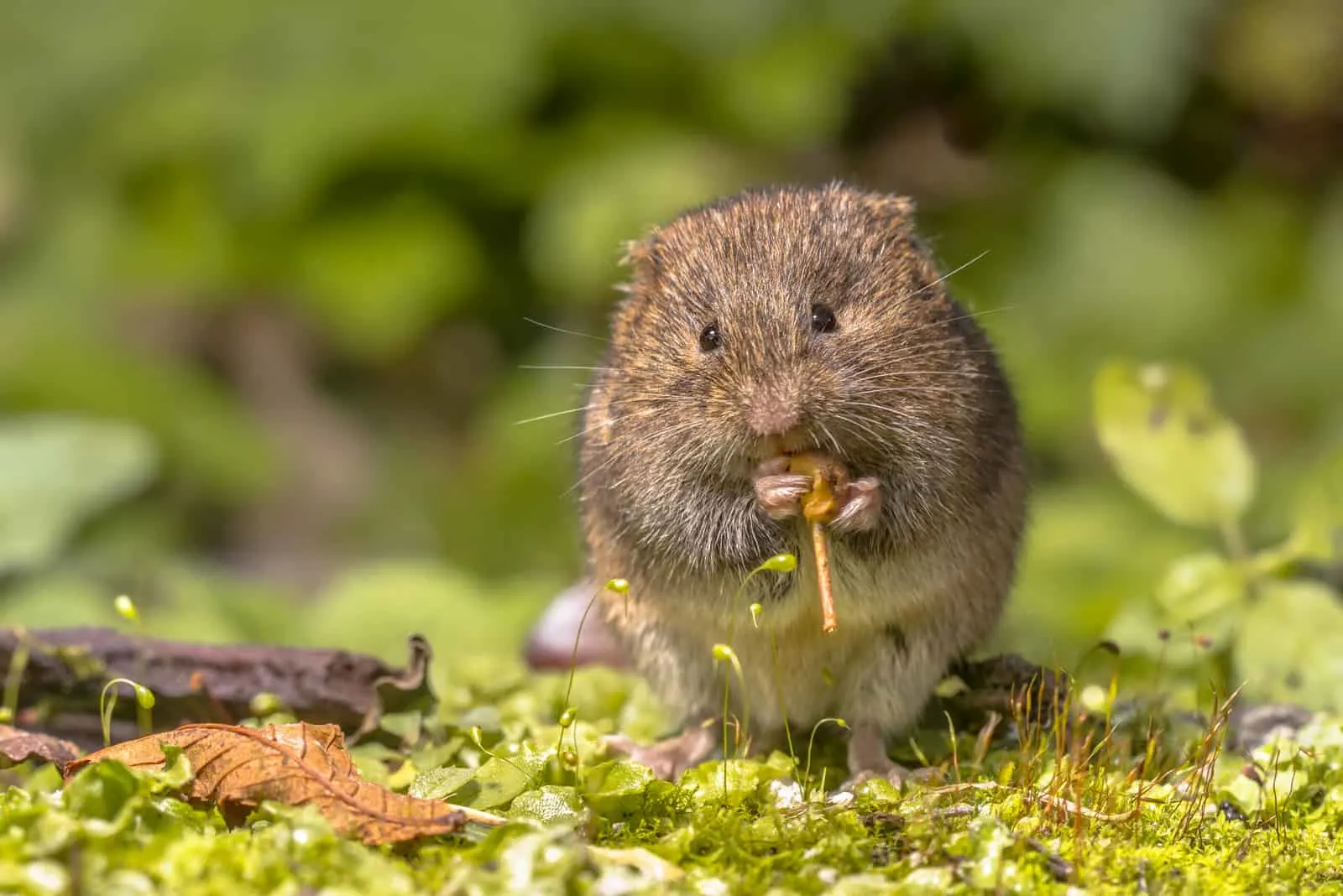
Culprit: small rodents – voles
Unlike gophers, voles don’t make any ridges.
The voles leave droppings, however, so their presence in your lawn is easily spotted.
Vole holes are found at the surface level, and if there are no ridges on the lawn and there are green or gray droppings, voles are the culprit.
In addition, field mice can occupy vole holes and leave small brown droppings.
Rats
Culprit: small rodents – rats
Unlike vole holes, rat holes are smaller, measuring up to 3 inches wide, and can be found around tree snags, near trash cans, and near big roots.
They feed on everything, including fruits and vegetables if they are grown in your yard.
The food sources for rats are almost everything present on your lawn, so you need to be very careful and observe the holes and lawn in general to determine if there are any rats present.
Rats dig up holes, which show signs of rodent activity in the entrance of the hole or surrounding area.
They also leave droppings, which are longer in size than vole droppings.
Two or three rats won’t cause much trouble to your lawn, but if there are many small holes in your lawn, you may have a rat infestation.
If you have many holes, it is an early sign of a rat infestation, but you can still fix the problem and avoid the damage many rats can do to your lawn.
You can find out how to fix rat holes and stop rats from appearing in the ‘How To Fix Small Holes In The Lawn?’ section further on.
Moles
Moles are another culprit of small holes in lawn overnight.
Mole holes create mounds of soil on top of the hole and don’t leave openings.
The mounds can grow up to 24 inches.
As far as the size of the hole is concerned, it is very small as moles burrow tunnels under the surface approximately 10 inches deep.
Moles are pests, which means that they also feed on grubs or invertebrates like earthworms.
How can you detect the presence of moles in your yard? Like every other pest, moles leave pellet-like droppings. The droppings are usually around surface runways.
Crayfish
Surprisingly, the culprit can also be crayfish.
Needless to say, you can only have crayfish holes if you live near watery areas like rivers, ponds, or lakes.
They burrow tunnels beneath the surface, and because the soil is well watered, the mounds will be muddy.
The mud mounds are approximately 3 inches high and 2 inches wide.
Insects
Another culprit can be insects.
When insects are in the larvae stage, they emerge and cause small holes that can be identified if they are combined with small piles of soil.
They begin their journey to the surface during colder seasons and emerge during spring.
Insects like Japanese beetles and cicadas bury their eggs in the soil and appear after they mature from the larvae phase.
During the larvae phase, Japanese beetles and cicadas feed on the roots of the grass, which attracts other animals such as raccoons, armadillos, wasps, and birds.
Japanese beetles and cicadas make small, shallow holes.
Wasps
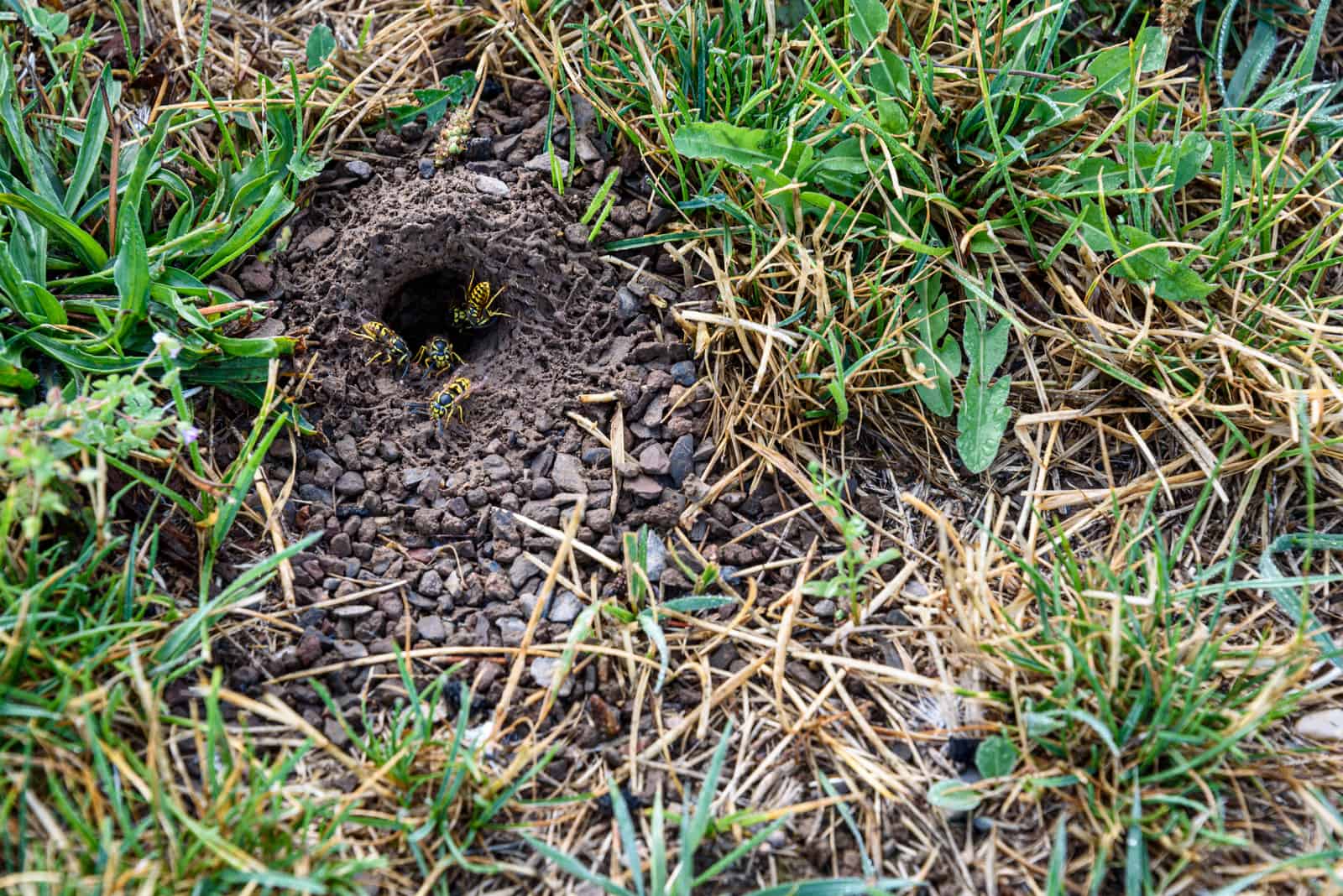
Wasps are another possible culprit.
The two most common wasps that cause small holes are scoliid wasps and cicada killer wasps.
The short grass and exposed ground will attract scoliid wasps because they need to dig holes to lay eggs.
On the other hand, cicada killer wasps will dig holes in order to bury their eggs as well as paralyzed cicadas.
Snakes
In order to identify snakes as the culprit, you obviously need to live in areas where there are snakes present. In ‘The Most Common Culprits
In Different Areas’ section, you can find the most common areas in which snakes can be present and dig holes.
I’m sure that last sentence will fill you with fear, but before you jump to the conclusion that snakes have caused small holes in lawn overnight, check if there are any rats and moles. Rats and moles are far more likely to cause holes than snakes.
Little holes caused by snakes are circular in shape, and may have snake skin around them.
Children
Playful children may sneak out early in the evening and dig holes because digging holes is fun for them!
Just ask children if they were digging the holes and explain to them that it can ruin the lawn.
If they love digging, find an alternative like buying a sandpit, for example.
Pets
If you have a dog or a cat and spot small holes in lawn overnight, check if they were recently outside.
You can always check their paws to make sure.
We have some solutions for if your pets are causing small holes in your lawn, so read on.
How To Fix Small Holes In The Lawn?
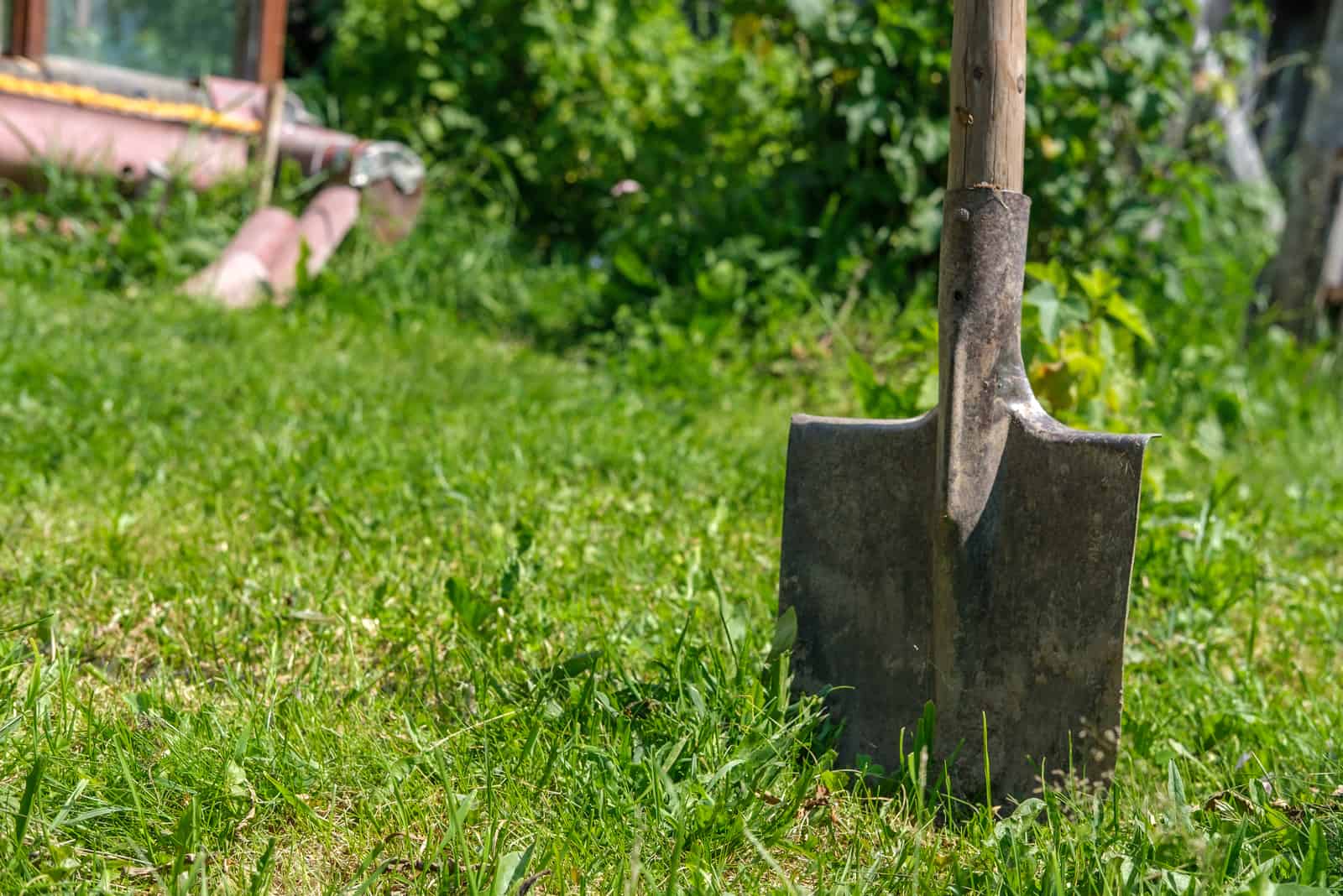
Now that you know all the possible culprits, it’s time to take a look at how to fix these troublesome holes.
Holes can be fixed according to their size.
Follow these steps:
• Take a flat shovel.
• Pry the sunken grass.
• Using the flat shovel, cut square shaped sods from the sunken areas.The sods should be approximately 1 foot wide.
• Use new topsoil for filling the holes.
• Replace the sunken sods.
• Press the grass sods down using your foot or a roller.
If the culprits are children or pets, there will be a small number of holes. Just use top soil or dirt and fill the holes using your hands. You can also add grass clippings to serve as the mulch.
Unfortunately, if severe damage is caused, you might have to completely redo your lawn, including planting new grass and replacing the soil.
How To Prevent Hole Digging
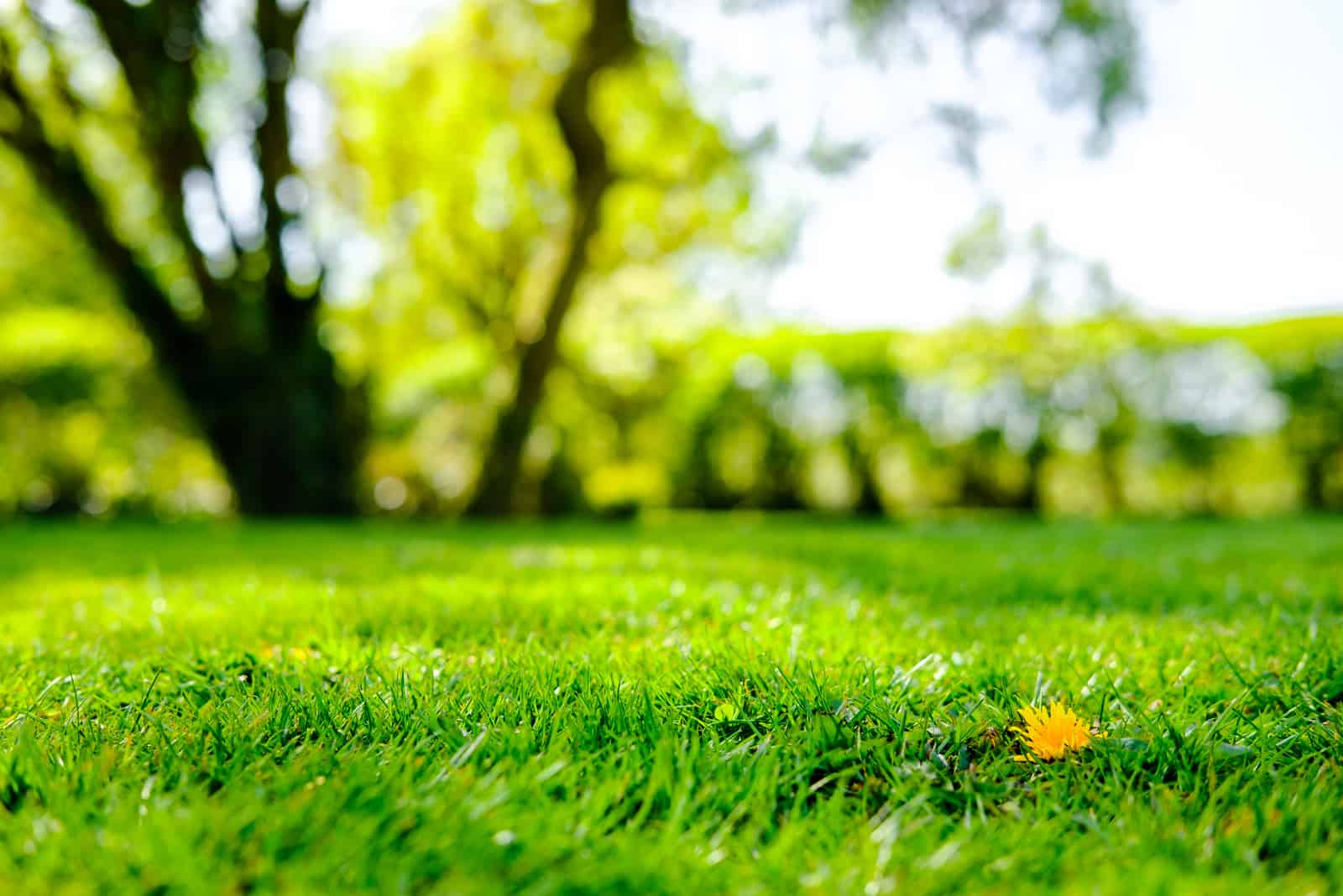
I am sure you are wondering which methods to use in order to prevent hole digging in the first place.
You can use different repellents, traps, grub killer, and castor oil in combination with dish soap and boiling water for pest control.
How To Prevent Chipmunks and Eastern Gray Squirrels
You can either use a natural repellent designed for animals or traps with nuts or seeds.
Just a reminder: pay attention if using traps as curious children or pets may touch them by accident.
How To Prevent Birds
As birds feed on grubs, you can use grub killer. It will remove any grubs and insects on your lawn.
How To Prevent Small Rodents
To eliminate the holes caused by small rodents like gophers, rats, or voles you can use castor oil. Combine the castor oil with boiling water and dish soap. For rats, simply use rat repellent.
Gophers can be repelled using castor oil pellets, peppermint oil, or sheets with fabric softener.
To prevent more vole holes, put the mixture of castor oil, boiling water, and dish soap in a spray bottle designed for gardens and simply spray it over the grass or vole holes.
As well as castor oil, there are other natural repellents.
These natural repellents include:
• Shallots
• Daffodils
• Marigolds
• Alliums
• Fritillarias
• Garlic
Another method is to reduce mulching and remove piles of lumber and bushes near the edges of the lawn.
Rat repellent will deter rats and prevent rat infestation. Before using repellent, mow any overgrown grass and remove any food sources.
I recommend:
[lasso id=”2881″ link_id=”1042″ ref=”amzn-broox-solar-animal-repeller-ultrasonic-repellent-motion-detection-led-flashing-light-dog-cat-repellent-squirrel-raccoon-skunk-rabbit-rodent-fox-deer-etc”]
If rats have caused severe damage, you might want to call pest control.
The Most Common Culprits In Different Areas
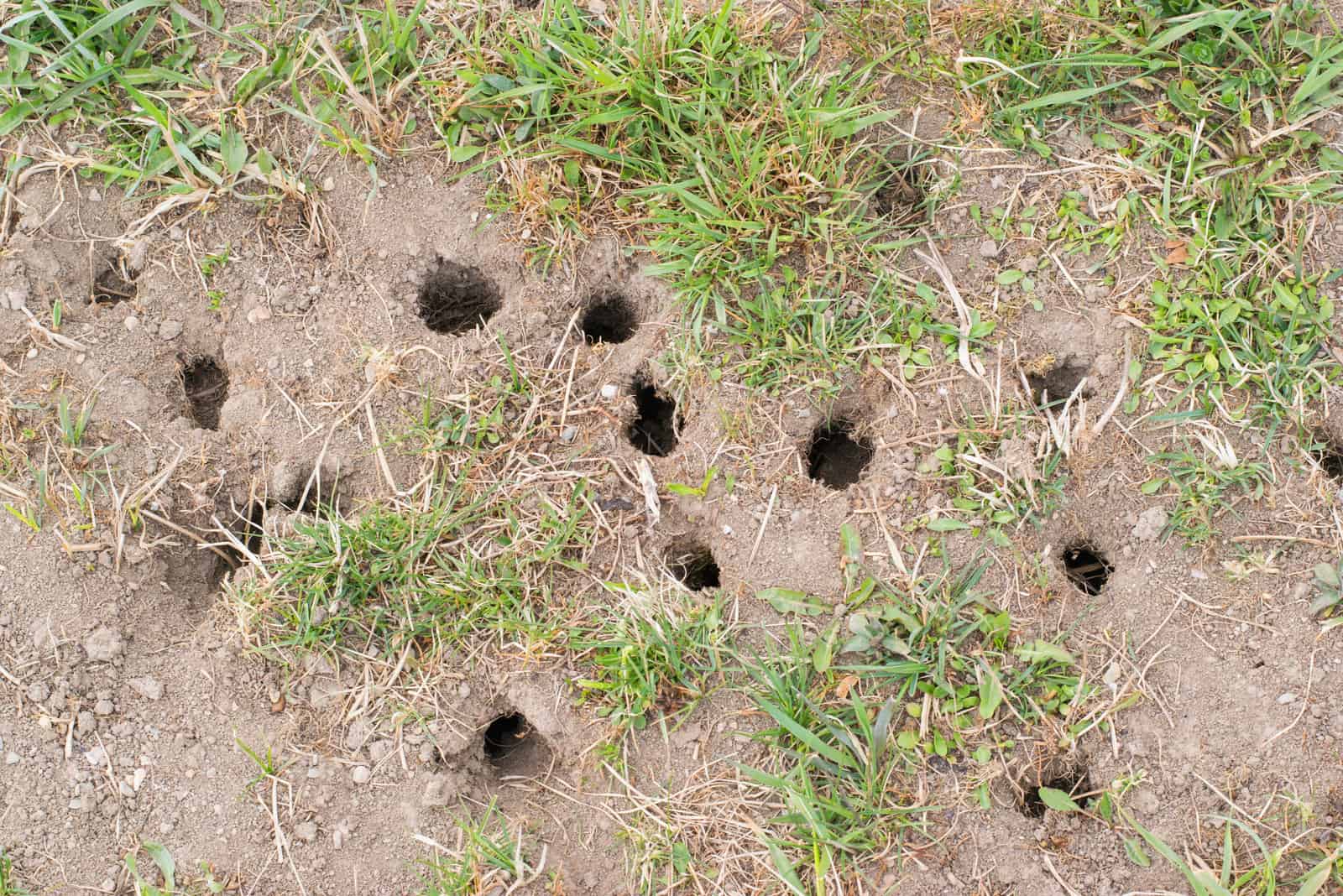
As previously mentioned, the area in which you live plays an important role in identifying the culprit of small holes in your lawn.
In North America, eastern gray squirrels are the most common culprits.
In the UK, the most common diggers are moles and eastern gray squirrels.
In Florida, armadillos are most likely to be the cause of small holes in lawn overnight.
Australia is home to many snakes that make small holes, but small rodents are also likely to cause small holes in this area.
Large Holes Culprits
If you notice large holes in your lawn, then wild animals are to blame.
Badgers will be attracted to squirrels and gophers.
Badger holes can later be occupied by foxes or skunks.
It is important to identify the culprit as soon as possible, bearing in mind that the smaller diggers like earthworms, insects, and wasps will attract small rodents, birds, chipmunks, and squirrels, which then attract wild animals as the bigger animals are their food source.
Summary
It can be very frustrating to find small holes in your lawn, especially if you spent a long time making it look perfect the day before.
Small holes in lawn overnight are caused by many different culprits which come in many different shapes and sizes.
Now that you know all the possible culprits, identify which one caused the holes in your lawn and then try to fix them using the methods we provided in this article.
We hope that you enjoyed reading our article, don’t be scared unless you have a fear of snakes and wild animals, as the small holes can be fixed easily enough.
Until next time!
Like this post? Share or pin it for later!



